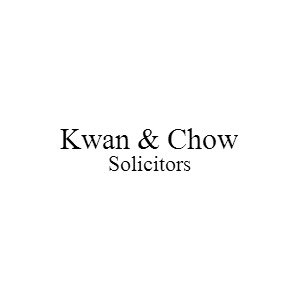Best Debt & Collection Lawyers in Central
Share your needs with us, get contacted by law firms.
Free. Takes 2 min.
List of the best lawyers in Central, Hong Kong
About Debt & Collection Law in Central, Hong Kong
Debt and Collection Law in Central, Hong Kong, focuses on regulating the processes and practices of debt recovery and dealing with default payment issues. Specific laws and regulations govern how creditors, third-party debt collection agencies, and debt buyers may operate when collecting consumer or commercial debts. Many rules are in place to protect consumers from harassment, intimidation, or otherwise unfair collection practices, while also ensuring legitimate debts are paid to the creditor.
Why You May Need a Lawyer
There are several situations where you might require legal assistance in Debt & Collection. Let's say you're a debtor facing continuous harassment from a debt collector, or you've been served with a legal notice for a debt that you do not recognize. Alternatively, if you're a creditor, you may need assistance with drafting comprehensive credit agreements, securing a debt, or pursuing a debtor who has failed to meet their payment obligations. A lawyer who is adept at dealing with Debt & Collection matters can help you understand your rights, obligations, and the best course of action to take.
Local Laws Overview
The primary legislation governing the Debt & Collection in Hong Kong includes the Limitation Ordinance, Bills of Exchange Ordinance, and Bankruptcy Ordinance. Additionally, several commercial laws and contractual laws also apply in debt-related matters. The law allows creditors to take legal action to recover debts, including lawsuits and bankruptcy proceedings. However, certain restrictive laws such as the Money Lenders Ordinance and Consumer Credit Ordinance ensure fair practices are adhered to prevent debtors from being exploited.
Frequently Asked Questions
1. Are there any specific laws protecting consumers from abusive debt collection practices in Hong Kong?
Yes, while there is no specific legislation on debt collection practices in Hong Kong, some provisions of the Crimes Ordinance, the Protection from Harassment Ordinance, and the Personal Data Ordinance protect consumers from abusive, harassing, or fraudulent collection practices.
2. What is the Statute of Limitations on debt in Hong Kong?
Under the Limitation Ordinance, the general limitation period for debts is 6 years. However, certain types of debts, such as credit card debt, may have a shorter limitation period.
3. What happens if I ignore collection attempts?
Ignoring collection attempts can lead to legal proceedings against you, which could include bankruptcy proceedings or legal action to recover the amount owed. It's always advisable to get legal advice if you are unsure of how to handle collection attempts.
4. Can I settle a debt for less than the amount owed?
Yes, it is possible to settle a debt for less than the total amount due. It largely depends on negotiations with the creditor or collections agency. However, this typically requires legal assistance or debt counselling for a successful outcome.
5. Can a creditor take my possessions if I don’t pay a debt?
A creditor generally cannot immediately take possession of your assets without going through the legal process. If a court judgment is secured against you, the Creditor may apply to the court for a Writ of Execution to seize your property to settle the debt.
Additional Resources
The Hong Kong Judiciary provides information on debt-related court procedures; the Consumer Council provides advice on debt collection practices; and the Official Receiver's Office offers relevant information on bankruptcy and winding-up matters.
Next Steps
If you need legal assistance in Debt & Collection, it's crucial to reach out to an attorney who specializes in this field. They can help you understand your rights and obligations, strategize your responses to collection attempts, negotiate with creditors, or guide you through legal proceedings if necessary. Don't hesitate to reach out to a lawyer as soon as you anticipate issues in managing your debts.
Lawzana helps you find the best lawyers and law firms in Central through a curated and pre-screened list of qualified legal professionals. Our platform offers rankings and detailed profiles of attorneys and law firms, allowing you to compare based on practice areas, including Debt & Collection, experience, and client feedback.
Each profile includes a description of the firm's areas of practice, client reviews, team members and partners, year of establishment, spoken languages, office locations, contact information, social media presence, and any published articles or resources. Most firms on our platform speak English and are experienced in both local and international legal matters.
Get a quote from top-rated law firms in Central, Hong Kong — quickly, securely, and without unnecessary hassle.
Disclaimer:
The information provided on this page is for general informational purposes only and does not constitute legal advice. While we strive to ensure the accuracy and relevance of the content, legal information may change over time, and interpretations of the law can vary. You should always consult with a qualified legal professional for advice specific to your situation.
We disclaim all liability for actions taken or not taken based on the content of this page. If you believe any information is incorrect or outdated, please contact us, and we will review and update it where appropriate.















